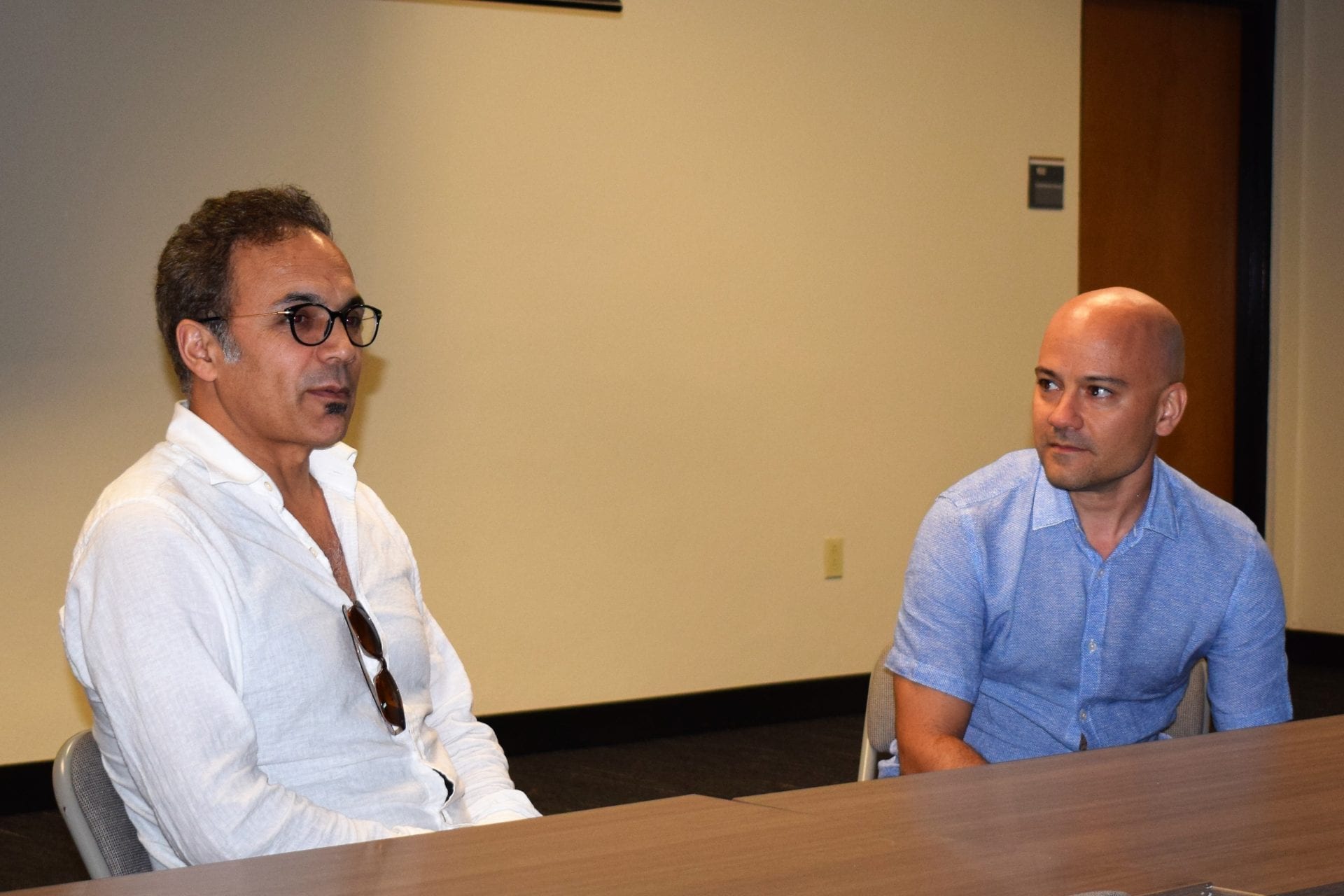In Search of a Lost Song: From New York to Dersim

On April 23, 2018, The Kurdish Political Studies Program (KPSP) hosted the screening of the movie ‘Zer’ and a conversation with the director, Kazım Öz, who is one of the leading Kurdish directors of his generation. He is also the director of highly acclaimed Bahoz (The Storm), Fotoğraf (The Photograph), the short film Ax (The Land) and the documentaries Demsala Dawî: Sewaxan (Last Season of Shawaks), He Bū Tune Bû (Once Upon a Time) and Dûr (The Distant). He is also the scenarist, editor and producer of most of his films which have received many awards from numerous international film festivals.
Güneş Murat Tezcür, Ph.D., Jalal Talabani Chair of Kurdish Political Studies opened up the event, which attracted UCF students from various disciplines. Zer tells the story of Jan, a young man who grew up in New York and is moved by a song that his grandmother sings to him on her deathbed in a New York hospital. She tells him about a recurring nightmare that she experienced as a child in a terrible massacre. After her death, Jan travels to Kurdish lands, despite his father’s protests, in search of the truth behind his grandmother’s song. His journey takes him deep into his own unknown heritage, revealing sad, violent, hidden truths and the importance of what his grandmother left behind. As he discovers how his grandmother was one of the lost girls of the Dersim Massacre of 1938, he is charmed by the warm humanity of people he encounters on his journey.
After the screening, a lively conversation took place between Öz and the audience, facilitated by Tezcür. Öz started by explaining how the Ministry of Culture in Turkey, which initially provided financial support for the film, demanded him to cut certain scenes, which were deemed politically sensitive, before its opening. In response to the censorship request, Öz agreed to black out the scenes but refused to take them out completely. He showed a slide that read: the current scenes are censored by the Ministry of Culture. He wanted to show the audience the film had been censored. This led to protests of the censorship from the audience during the opening screening at Istanbul Film Festival. The Ministry further demanded that those slides be removed.
 “They wanted to censor their own censor,” Öz stated.
“They wanted to censor their own censor,” Öz stated.
The audience was interested in why the Turkish Ministry of Culture had sponsored a film in the first place if it was going to censor it after its production. Öz explained that political circumstances were different when he first started shooting the film.
The Kurdish Initiative process launched by the government in 2009 opened a space for a series of legal reforms and public debates of Kurdish question in Turkey, until it came to a very violent end in 2015. During that time, the government encouraged public discussions about the Dersim Massacre of 1938 and blamed the current opposition party CHP, which was ruling the country in the 1930s. When the film was ready to be screened in spring 2017, the democratic opening had already ended long ago.
One student asked if Öz was interested in screening Zer at other kinds of platforms given the restrictions it faced at movie theaters in Turkey. Another question asked about the casting of the main character Jan, and if actors or actresses were having any difficulty in their careers after appearing in a censored movie.
Öz gave the example of an actress who is now ostracized from the industry, not for acting in Zer, but for challenging of the nationalist discourse in Turkey in an interview. Öz also touched upon the difficulties of making political movies in authoritarian contexts. He told the audience that his duty as an artist was to be honest and to do what he believes to be necessary under any conditions.
“That is what differentiates artists from politicians,” he added.
The KPSP thanks Kinda Haddad from the Prince Mohammad Bin Fahd Program for her gracious help for organizing the event.
